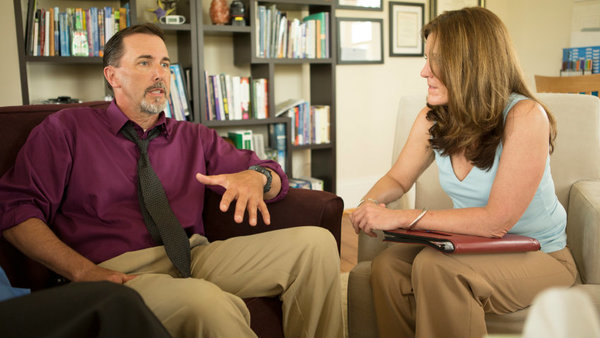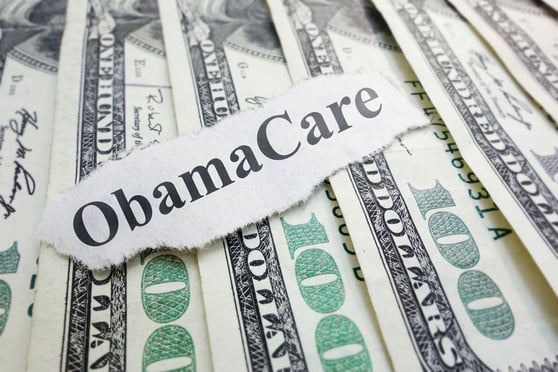Never mind saving, people don’t even plan well for retirement—and that’s when theyplan at all.
|And that’s despite the fact that many have some serious dreamsthey intend to live once they leave the workplace.
|Related: Boomers don't know how unprepared they arefor retirement
|That’s according to a Marketwatch report, which says that this lack of planningcan boobytrap even the dearest of dreams, leaving people to facewhat could be a nightmare instead—as many as 35 years with littlemoney, little direction and broken, unachievable dreams.
|Most people, it says, spend more time planning a vacation thanthey do planning for retirement.
|That leaves a lot of questions unanswered, and a lot ofuncertainties—as if there weren’t enough already—to be faced whenit might be too late to do anything about them.
|Questions people think about when planning a vacation includesuch diverse issues as where to go, where to stay, how much tospend, whether their medical insurance will cover them during theirtrip, who’ll take care of pets, who’ll watch out for the house andwhether there’s actually enough money in the vacation fund to payfor the trip.
|But not only do most people not have enough saved forretirement, they also don’t have a clue how much money they’llneed—and the issue of how to pay for medical care in old age is abig roadblock that is often bypassed when people do give retirementplanning any thought.
|Instead, starting to plan early—and to do it more as if you wereplanning for the vacation of a lifetime—can not only steer you inthe right direction, it can give you the incentive to save moremoney, or find ways to make more.
|That can ensure that you approach retirement better prepared, and in abetter position, to anticipate those additional years with pleasureinstead of dread.
||13. What’s your target retirement date?
If you don’t know the answer to this one, you can’t accuratelycalculate with any degree of confidence how much money you’ll need,or how long you have to accumulate it. If you go early, say at 62,you’ll need more money than if you keep working and wait tillyou’re older.
|Related: Retirement income calculators: What toknow about their projections
|Having to save to cover expenses for as many as 10 or even 20extra years means you really need to give serious thought to anappropriate retirement date.
|12. What are your exact monthly living expenses?
If you don’t have a handle on what you spend now, how will youknow how much you’ll be spending in retirement?
|While some expenses will fall or even go away entirely—such asdry cleaning, perhaps, or commuting costs—others could increase(particularly if you decide to go on a world cruise or makefrequent trips to visit friends and family).
|But you’ll still be on the hook for housing expenses, utilities,food, transportation and medical care, and you might be surprisedat how those “fixed” expenses can change once you retire.
|If you know what you spend, you can calculate a budget for whenyou’re no longer drawing a paycheck, and you’ll have a better ideaof whether you can actually stick to it.
|11. Do your hobbies and special interests cost you?
If they do, better make sure you put them into your budget, oryou’re going to be spending a lot of time either broke orbored.
|Of course, you might be able to turn one or more of thosespecial interests into a small business, which could help you meetnot only its expenses but some of your others as well. But withouta plan in place, how will you know?
|10. How much money do you need to build your cash emergencyfund?
If you don’t have an emergency fund at all, that should tell youthat it’s time to start one. And even if you do, give some thoughtto what might arise—repairs on an older car, for instance, ormedical bills you might be able to anticipate based on your own oryour family’s health history.
|Lack of an emergency fund should make you very wary of justplunging into retirement willy-nilly. And before you say you haveplenty in your retirement accounts, remember that a cash emergencyfund is just that: cash that you can lay your hands on quickly.
|If you have to liquidate retirement holdings to pay for anunexpected large bill, like a root canal, a broken refrigerator ora plumbing problem, you could not only lose money on an asset saleat a time that’s not advantageous but also reduce the amount ofmoney on hand in retirement accounts that have to produce enoughreturns to see you through retirement.
|9. How much Social Security will you get, and when will youstart drawing benefits?
If you don’t know what your monthly Social Security benefit will be, how can youplan withdrawal of other retirement funds to make up the amount youneed to live on each month?
|Also, if you don’t know when to start drawing benefits, or do sowhile working a part-time job, you could actually lose benefits;earn too much before age 70 and your benefits can be reduced tocompensate.
||8. What’s the final total of all your retirement savings?
If you’re like most people these days, you’ve changed jobs a fewtimes—maybe several—in the course of your career. That might meanthat you’ve lost track of one or more retirement accounts atprevious employers. You’ll need to track them down and perhapsconsolidate them so that you have a better idea of the full balanceof your savings.
|And then there’s the possibility that your savings have gonedown—or up—based on market movement. If you haven’t been payingattention to what’s happening to your retirement contributions, youmight end up retiring early than is wise, or even later than isgood for your health.
|7. Are you staying in your current home, downsizing or movingto a new location?
If you’re staying put, you might have a pretty good idea ofexpenses connected with your home. But if you’re downsizing ormoving to a new place, you’ll want to get the figures nailed downas quickly as possible—not just on your eventual dwelling, but alsoon the area’s cost of living, taxes and other expenses.
|Related: The new top 10 best places to retire in2017
|In addition, moves, whether near or far, take time to execute.Home sales and purchases, as well as dealing with the physical andemotional effects of packing and moving, should be planned out farenough in advance that they won’t cause any undue stress orexpense.
||6. Do you have health issues you need to consider?
This not only plays into how much you have saved toward medicalexpenses but also where you live and what kind of medical coverageyou have or anticipate having.
|If you’re moving, you’ll have to line up new doctors andtreatment facilities, and that involves eligibility and coveragecosts. In addition, the climate of a new potential residence couldplay a major part in your decision to move or to stay where youare.
|5. Are you planning on doing consulting work once you retire,or turning a hobby into an income-producing activity?
That can make a big difference in how much you have to save, butit could also serve as a cautionary note in case you’re not able tobring in business—or if your health obliges you to stop. If you’redependent on that income, it could affect your wholeretirement.
|It could also bring you peace of mind if it’s something youhadn’t considered but find appealing; the extra money frompart-time work in retirement could not only make your retirementmoney last longer, but also keep you healthier and happier fromproductive activity that makes you interact with others.
||4. Do you know what required minimum distributions are?
If you don’t, and you have retirement accounts, you’d betterfind out what RMDs are—because once you turn 70½ they’remandatory (hence the “required” part) and you’ll have to plan forhow they will affect not just your budget but your taxes.
|Careful planning on these, in concert with any other income youmay have, can help keep your tax bills to a minimum and stillprovide you with the money you need in retirement.
|3. Do you have a will?
If you don’t, now is probably the time. Otherwise, how will yourfinal wishes be carried out? Whether you have family or want toleave your estate to charity, it won’t happen without a will.
||2. Do you understand how important a power of attorney can befor both medical and financial issues?
If anything happens to you and you have no significant other tohandle health or financial decisions—or if the decisions to be madeinclude end-of-life wishes, such as a desire not to be treated byextraordinary medical measures—you should have a power of attorneyfor each category and make sure that the person who is designatedto execute your wishes is aware of what’s involved.
|1. Do you know that your investment risk profile should bereevaluated once you become a retiree?
Once you’re no longer bringing in regular income from a job, youneed that retirement money to last as long as possible.
|That means that you should review assets in your retirementaccounts to be sure there’s no undue risk.
Complete your profile to continue reading and get FREE access to BenefitsPRO, part of your ALM digital membership.
Your access to unlimited BenefitsPRO content isn’t changing.
Once you are an ALM digital member, you’ll receive:
- Critical BenefitsPRO information including cutting edge post-reform success strategies, access to educational webcasts and videos, resources from industry leaders, and informative Newsletters.
- Exclusive discounts on ALM, BenefitsPRO magazine and BenefitsPRO.com events
- Access to other award-winning ALM websites including ThinkAdvisor.com and Law.com
Already have an account? Sign In
© 2024 ALM Global, LLC, All Rights Reserved. Request academic re-use from www.copyright.com. All other uses, submit a request to [email protected]. For more information visit Asset & Logo Licensing.














